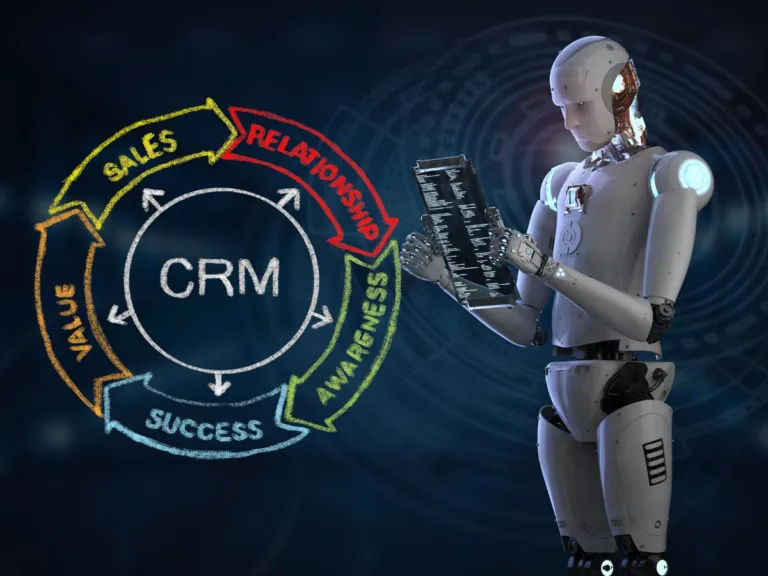The Ultimate Guide to Choosing the Best CRM for Email Marketing
Email Marketing is a powerful tool for businesses looking to engage with their customers. One key component to maximize the effectiveness of your email campaigns is choosing the right Customer Relationship Management (CRM) system. With a plethora of options available in the market, finding the best CRM for email marketing can be overwhelming. In this comprehensive guide, we will walk you through the crucial factors to consider when selecting the perfect CRM to help you elevate your email marketing game.
Key Takeaways:
- Understand Your Needs: Before choosing a CRM for email marketing, identify your specific requirements and goals.
- Integration Capabilities: Look for a CRM that seamlessly integrates with your existing tools and platforms to streamline processes.
- Automation Features: Opt for a CRM that offers robust automation features to save time and improve efficiency in email marketing campaigns.
- Analytics and Reporting: Choose a CRM that provides in-depth analytics and reporting to track the performance of your email marketing efforts.
- Customer Support: Select a CRM provider that offers reliable customer support to assist you in case of any issues or questions.
Understanding CRM Platforms
Definition and Role of CRM in Business
One of the key components of successful email marketing is a Customer Relationship Management (CRM) platform. A CRM system is a tool that helps businesses manage interactions with current and potential customers. It stores valuable customer data, tracks engagement, and helps in creating personalized marketing campaigns. CRM platforms play a vital role in enhancing customer relationships, boosting sales, and improving overall marketing effectiveness.
Types of CRM Systems for Email Marketing
Some common types of CRM systems for email marketing include cloud-based CRM, open-source CRM, industry-specific CRM, and small business CRM. Each type offers unique features and benefits tailored to different business needs. When choosing a CRM platform for email marketing, it’s necessary to consider factors such as scalability, integration capabilities, and ease of use. Any CRM system you choose should align with your business goals and marketing strategies.
Businesses can benefit from CRM systems by improving customer segmentation, targeting, and personalization in email marketing campaigns. Some popular CRM platforms for email marketing include Salesforce, HubSpot, Mailchimp, and Zoho CRM. Any CRM you select should align with your budget, business size, and technical requirements. Importantly, before making a decision, thoroughly evaluate the features and functionalities of different CRM systems to ensure it meets your specific email marketing needs.
Identifying Your Email Marketing Needs
Evaluating Your Business Size and Industry
Email marketing needs can vary depending on the size of your business and the industry you operate in. Small businesses may have different needs compared to large corporations, while industries like e-commerce may require more robust email marketing features than service-based industries. Consider your business size and industry to determine the level of customization, automation, and scalability you need in a CRM for email marketing.
Outlining Your Email Marketing Goals
If you want your email marketing efforts to be successful, it’s crucial to outline your goals from the start. Are you looking to increase brand awareness, drive sales, or nurture customer relationships? By defining your goals, you can tailor your email campaigns, segment your audience effectively, and measure the success of your campaigns based on these objectives. Your goals will shape the features and capabilities you require in a CRM for email marketing.
If you’re new to email marketing, your goals may focus on building a subscriber list, creating engaging content, and increasing open and click-through rates. As you gain more experience, you may pivot towards advanced goals like lead generation, customer retention, and personalized customer journeys. Your email marketing goals should evolve as your business grows and your audience matures.
Analyzing CRM Features and Benefits
Core Features to Look for in a CRM for Email Marketing
Features are important to consider when choosing a CRM for email marketing. Look for key functionalities like contact management, segmentation options, automation tools, and detailed analytics. A good CRM should make it easy for you to manage your email lists, target specific audiences, automate workflows, and track the performance of your campaigns.
The Advantages of Integrating CRM with Email Campaigns
Features: Integrating your CRM with email campaigns can bring numerous benefits to your marketing efforts. By combining customer data from your CRM with email marketing strategies, you can create highly personalized and targeted campaigns. This integration allows you to send the right message to the right people at the right time, increasing engagement and conversions.
Plus, integrating CRM with email campaigns streamlines your workflow by centralizing customer information and communication history. This leads to a more efficient and cohesive approach to managing customer relationships and driving business growth.
Assessing Compatibility and Integrations
Ensuring Compatibility with Your Current Tools
All your current tools play a crucial role in your daily operations, so it’s important to ensure that your chosen CRM for email marketing can seamlessly integrate with them. From your e-commerce platform and customer service software to your social media management tools, compatibility is key to streamlining processes and maximizing efficiency. Make a list of all the tools you currently use and check the CRM’s compatibility with each one to avoid any disruptions in your workflow.
Exploring Integration Possibilities
If you’re looking to enhance your email marketing efforts, exploring integration possibilities is a must. Many CRMs offer a wide range of integrations with popular email marketing platforms, analytics tools, and lead generation software. From Mailchimp and Constant Contact to Google Analytics and HubSpot, the right integrations can elevate your email marketing strategy to new heights. Take the time to research which integrations are available with your CRM choice to ensure a seamless experience and unlock the full potential of your email campaigns.
If you’re unsure about which integrations would best suit your needs, don’t hesitate to reach out to the CRM provider for guidance. They can offer insights into the most popular integrations among their users and help you choose the ones that will complement your email marketing goals.
Strategic Tips for Choosing Your CRM
Keep these strategic tips in mind when choosing the best CRM for your email marketing needs:
- Understand your specific business goals and needs before selecting a CRM.
- Consider the scalability of the CRM system to ensure it can grow with your business.
- Evaluate the integration capabilities of the CRM with your existing tools and systems.
- Look for user-friendly interfaces and robust reporting features to streamline your email marketing efforts.
- Take into account the level of customer support provided by the CRM vendor for any troubleshooting or assistance.
Perceiving these strategic tips can help you make an informed decision when choosing the best CRM for your email marketing strategy.
Step-by-Step Approach to CRM Selection
| Step 1: Define Needs | Step 2: Research Options |
| Identify your specific requirements and goals for the CRM system. | Explore different CRM options available in the market and compare features. |
| Consider the scalability and integration capabilities needed for your business. | Read reviews, ask for recommendations, and demo the software to see if it meets your criteria. |
If you follow this step-by-step approach, you can better assess which CRM aligns with your business objectives and email marketing strategy.
Pro Tips to Aid Your Decision-Making Process
- Seek demos and trials of the CRM software to test its usability and features firsthand.
- Consult with your team members to gather input on their needs and preferences for the CRM.
To aid your decision-making process, it’s important to test out different CRM options and gather feedback from key stakeholders to ensure the chosen system meets everyone’s requirements. After considering these pro tips, you’ll be better equipped to make an informed decision on selecting the best CRM for your email marketing endeavors.
This comprehensive guide provides valuable insights and strategies to help you choose the perfect CRM for your email marketing campaigns. By following these tips and steps, you can streamline your processes, enhance customer engagement, and drive business growth effectively. Note, selecting the right CRM is crucial for achieving marketing success and fostering long-lasting customer relationships. Happy CRM hunting!
Comparing CRM Platforms: Pros and Cons
Your decision to choose the best CRM for email marketing can significantly impact your business’s success. Understanding the pros and cons of different CRM platforms is crucial in making an informed choice. Let’s break down the key factors to consider when comparing CRMs.
Factors to Consider When Comparing CRMs
- Price: Look at the cost of the CRM platform and consider if it fits your budget.
- Features: Evaluate the features offered by each CRM and see if they meet your business needs.
- Integration: Check if the CRM integrates seamlessly with other tools you use for marketing and sales.
- Customization: Assess how customizable the CRM platform is to adapt to your specific requirements.
Even though all CRMs aim to streamline your email marketing efforts, each platform has its unique strengths and weaknesses. Let’s research into the pros and cons of some popular CRM solutions to help you make the right choice.
The Pros and Cons of Popular CRM Solutions
There’s a plethora of CRM platforms available in the market, each offering distinct features to cater to various business needs. It’s vital to weigh the pros and cons of these solutions to determine which one aligns best with your email marketing goals.
Implementing Your Chosen CRM
Preparing for a Smooth CRM Integration
If you’ve chosen a CRM for your email marketing needs, congratulations! Now, it’s time to prepare for a smooth integration of this software into your existing systems. Start by organizing all your contact data and ensuring it’s clean and up-to-date. This will make the transition process much easier and help prevent any data errors.
Next, familiarize yourself with the features and functionalities of the CRM you’ve selected. Take the time to understand how it works and how it can best serve your email marketing strategies. Additionally, communicate with your team about the upcoming integration, and make sure everyone is on the same page to ensure a successful implementation.
Best Practices for CRM Adoption and Training
For a successful CRM adoption and training process, it’s crucial to provide comprehensive training sessions for all team members who will be using the software. This training should include not only how to use the CRM but also best practices for email marketing within the platform. Encourage team members to ask questions and provide ongoing support as they familiarize themselves with the new system.
Your team’s buy-in and understanding of the CRM are crucial for its successful adoption. Make sure to highlight the benefits of the CRM, such as improved email targeting and segmentation, streamlined campaign management, and enhanced reporting capabilities. By illustrating how the CRM can make their jobs easier and more efficient, you’ll likely see higher adoption rates and better utilization of the software.
Conclusion
On the whole, choosing the best CRM for email marketing is a crucial decision that can greatly impact your business’s success. By considering factors such as integration capabilities, email automation features, customization options, and pricing, you can find the CRM that best fits your needs and helps you achieve your marketing goals. Remember to also take into account your team’s requirements and training needs to ensure a smooth transition and optimal use of your chosen CRM.
With the right CRM in place, you can streamline your email marketing efforts, improve customer relationships, boost engagement, and ultimately drive more sales. So take the time to evaluate your options, test out different platforms if necessary, and select the CRM that provides the best features and support for your unique business needs. By following this guide, you’ll be well on your way to enhancing your email marketing strategy and growing your business successfully.
FAQ
Q: What is the importance of CRM in email marketing?
A: CRM (Customer Relationship Management) is crucial in email marketing as it helps businesses manage and analyze customer interactions throughout the customer lifecycle, improving personalized communication and customer retention.
Q: How can the right CRM enhance email marketing strategies?
A: The right CRM can provide valuable insights into customer behavior, preferences, and engagement metrics, allowing businesses to create targeted and effective email marketing campaigns that drive conversions and revenue.
Q: What key features should I look for in a CRM for email marketing?
A: When choosing a CRM for email marketing, look for features such as advanced segmentation capabilities, automation tools, integration with email service providers, analytics and reporting, and scalability to accommodate your business growth.
Q: How can I ensure seamless integration between CRM and email marketing platforms?
A: To ensure seamless integration, choose a CRM that offers built-in integrations with popular email marketing platforms or APIs for customization. It’s also important to map out your data flow and processes to optimize the connection between CRM and email marketing tools.
Q: What are some common pitfalls to avoid when selecting a CRM for email marketing?
A: Some common pitfalls to avoid include choosing a CRM with limited email marketing functionality, overlooking the ease of use for your team, neglecting mobile optimization, and failing to consider data security and compliance requirements.





